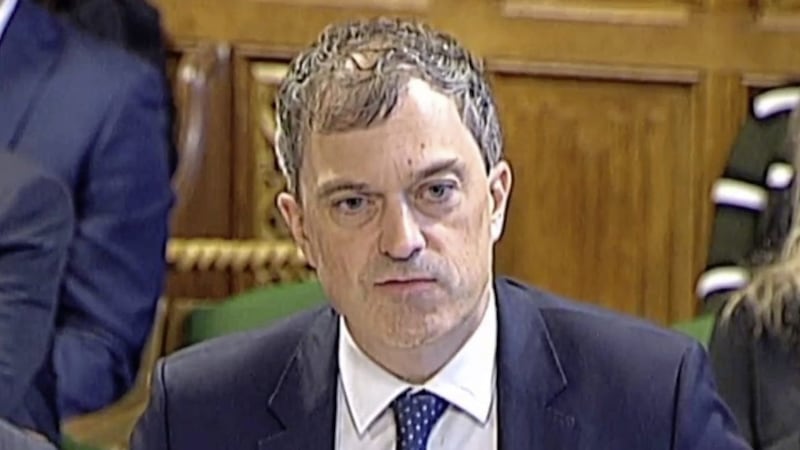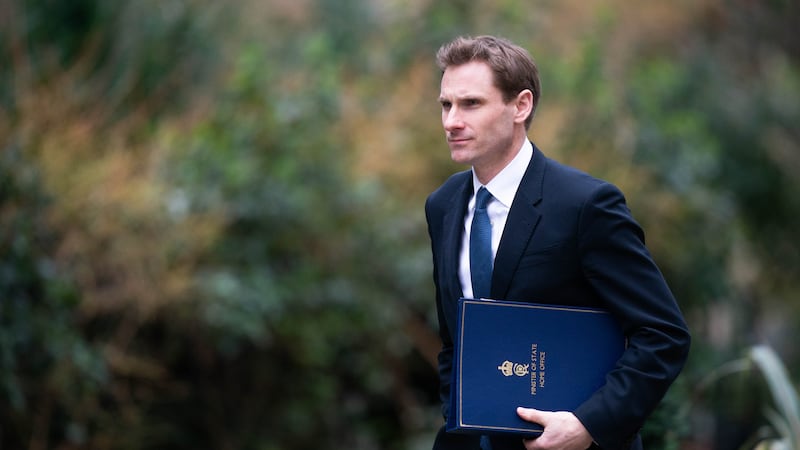JULIAN Smith has insisted that checks on goods moving between Northern Ireland and Britain will be "minimal" after Brexit.
However, the secretary of state was unable to give any further detail on the nature of the checks arising from the draft deal agreed between the EU and UK last week.
The DUP has refused to back the deal, while in Belfast earlier this week loyalists warned they would not accept an "economic united Ireland".
Mr Smith moved to reassure unionists yesterday, saying that Northern Ireland will be "out of the European Union, out of free movement rules, out of the EU budget, out of fisheries policy, out of the common agricultural policy and free to do trade deals".
"We're talking about a very limited set of goods areas and on that I am going to be working with Northern Ireland businesses and political parties to make sure that the British government is minimising any challenge between NI and GB," he said.
Pressed on what those checks will be, Mr Smith responded: "There will be some information required but it's a minimal amount."
During the secretary of state's first appearance before Westminster's Northern Ireland Affairs Committee yesterday, an NIO official detailed the level of trade from the north to Britain as £18bn, compared to £5.2bn with the Republic and £3.6bn with the rest of the EU.
DUP MP Ian Paisley put it to Mr Smith: "I have to go out and tell businesses in my constituency that I don't know what you have to do to carry out £18bn worth of trade with our country, our country, not a foreign country... you want me to vote for this? You can't be serious."
Mr Smith responded: "We have got our own commitments we are going to put into the withdrawal agreement bill to deliver unfettered access from GB to NI. We'll be looking at communication technology and we'll be making sure we support Northern Ireland businesses.
"We will be fully committed to making sure that business transaction, the movement of those goods, will be as easy and straightforward as we can do. It's obviously in the government's interests that's the case."
Mr Paisley responded by telling Mr Smith he would feel "pretty aggrieved" if he had to fill in a form to move goods from his constituency in North Yorkshire to London.
Meanwhile, British Home Secretary Priti Patel has also been unable to clarify what checks will take place on goods, as she refused to be drawn on what she said was a "hypothetical" situation.
She said she would seek clarification on the matter after an appearance at the Home Affairs Committee failed to clear up confusion.
Boris Johnson has previously said fresh regulatory and customs checks in the Irish Sea would not happen on his watch and he repeated yesterday that "there will be no checks".
At the committee hearing to discuss Home Office preparations for Brexit, Ms Patel was asked by MP Stephen Doughty if Border Force officers will be involved in checking, either in person or electronically, exit declarations from Northern Ireland to Great Britain.
She said the situation "depends on various circumstances", adding: "I'm not going to speak about hypothetical situations right now."
On Monday, Brexit Secretary Stephen Barclay acknowledged that products moving the other way will also encounter added paperwork, in the form of exit summary declarations, having previously insisted the route would be frictionless.
Asked about customs checks, Paul Lincoln, director general at Border Force, told the Home Affairs Committee: "It's not been decided whether or not we will do checks as an organisation. If goods are moving from GB to Northern Ireland they will have to make declarations."
Ms Patel said HMRC would "take the lead" on this issue.








